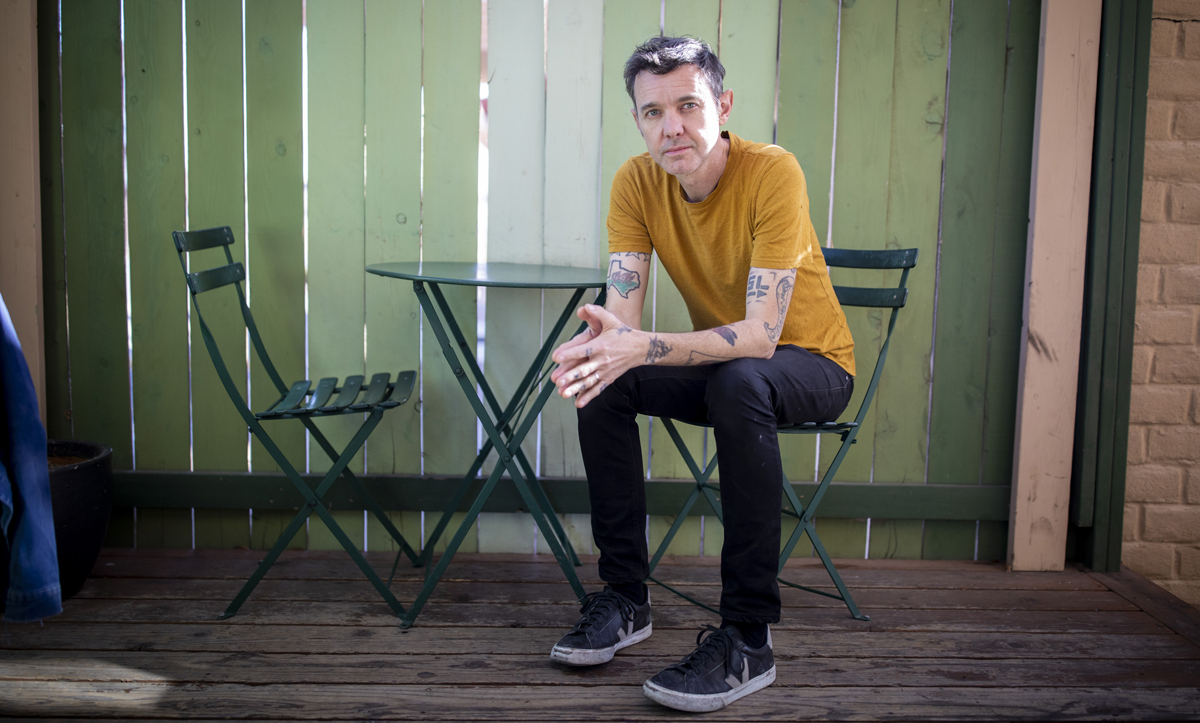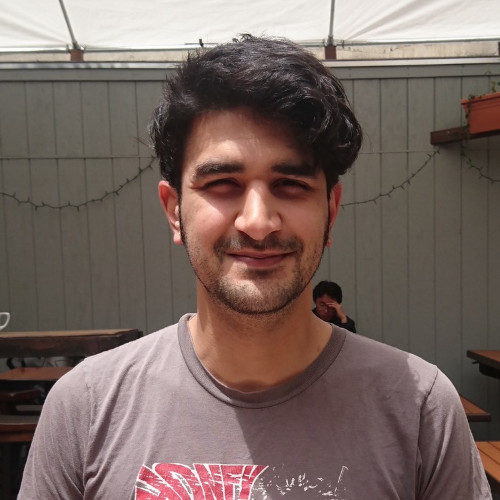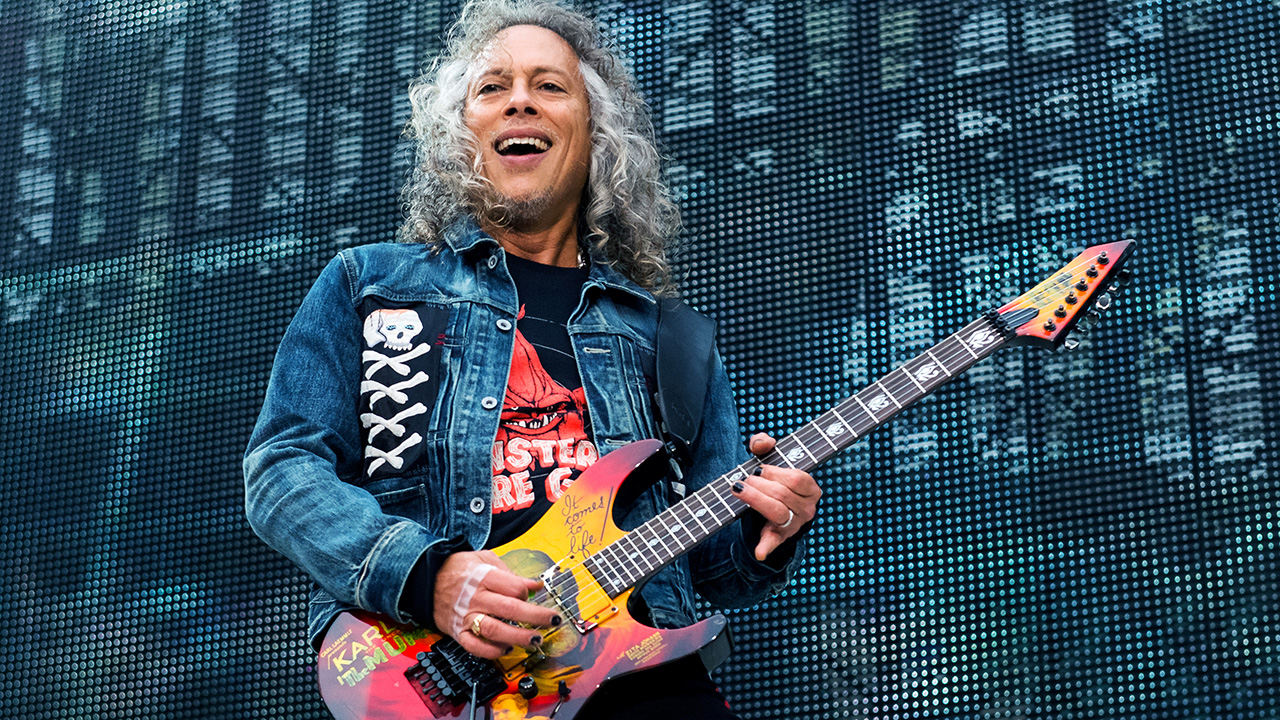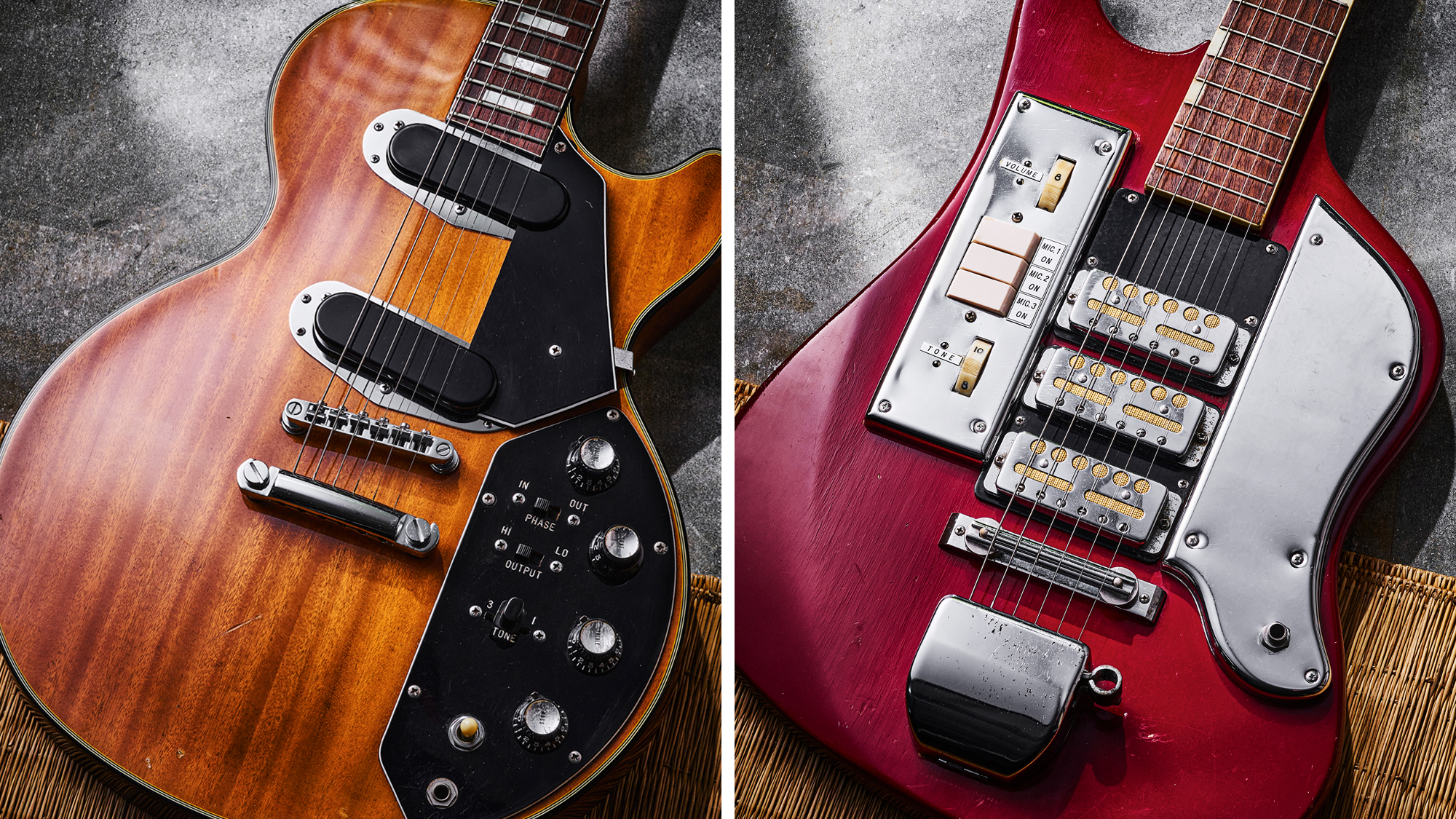Jim Ward: “I've always written on an unplugged electric guitar. That's why I play a lot of bombastic stuff with open strings – it fills up the room”
The Sparta and At the Drive-In founder details the making of Daggers, his first solo album proper – and why he'll never exhaust the possibilities of his spartan setup

Written and recorded during lockdown, Jim Ward's new album Daggers is far from an introspective listen, even if it was – almost literally – written in the corner of his bedroom.
The Sparta, Sleepercar and former At the Drive-In guitarist has been slinging incendiary riffs for over 20 years, and still manages to find continual inspiration from an incredibly, er, spartan setup. His pedalboard is not much more than a custom overdrive, two Boss DD-7s and a DM-2W, standing in for his original DM-3 that was stolen on tour.
Besides what can be learned from Jim's songs and life experience, in an age of endless new gear releases and social media showing off, it's refreshing to see a working musician who remains laser-focused on releasing music, not just the tools used to create it.
We caught up with Jim to discuss his new record, a silver lining for him in an exhausting and unprecedented year.
How would you describe Daggers, in the context of your discography?
“I just call this my first solo rock record. That's the easiest way to explain that it's electric, and loud. I think that 'rock' is the biggest genre you can be a part of [as a guitarist]. You can live in so many spaces within that word that it's comfortable for me to say that, because it easily explains all the stuff I'm doing on it.”
At what point did you think this wasn't, for example, a Sleepercar record? Some of the tracks could sit well with that project.
Get The Pick Newsletter
All the latest guitar news, interviews, lessons, reviews, deals and more, direct to your inbox!
“I would say that for this record, the first thing that I wrote was the riff for I Got A Secret, so I knew from the beginning that this was going to be different from anything I had done by myself, for sure. Usually what happens is I come out of a [record] cycle for a band, and I want to make something that doesn't sound like what I was just working on. [That] is why all the solo stuff and the Sleepercar stuff is vastly different than the rock bands I've been in. This time, I don't really exist within a band any more.”
In what sense?
“Even with Sparta, it's just Matt Miller – he's the only other member of Sparta now. So, when we made that last record [2020's Trust the River], it's mostly my songs, and one of his songs. So, I think I've been evolving to this for a while. Even geographically, I'm the only one that lives in El Paso, out of any band that I've ever been in, y'know? Everybody else has sort of moved on. I don't go to band practice – I work at my home.”
What would you say was the main influence on the record?
“I think when I was writing this stuff, it was a direct meditation on the times. I was feeling anxious and worried about the world, alone and isolated and I needed to blow shit up a little bit.”
You mentioned El Paso before – how important do you think it is to the music you make?
Fame and fortune has never really been part of the story for me. It's not a dog-eat-dog world in El Paso when it comes to music... for me, that's freedom
“I think being from here and living here – we're a land-locked port city, you know? We have a ton of commerce that comes through our town, and the characters that come with it, and the attitude that comes with it. It's a really unique place. It's the brackish water between the first and the third world, between American exceptionalism and Mexican humility. All of these things mash together, and it builds you a certain way.
“The fact that I haven't moved on and sort of had that influence gone... has allowed me to grow up, all these years, in the same environment. I think there's a freedom to being from here – there's a freedom to West Texas in general – but there's an isolation in freedom and there's a belief in 'leave me alone'. We're independent people – I don't want to be told what to do, and I have a hard time with that in general. If people tell me I have to do something, it irritates me.”
A lot of creative people probably feel that way, especially about their art.
“It's maybe one reason why I can't live in LA, around the record industry, because it drives me bat-shit crazy, to be honest. Because there's always an end goal to that, right? 'You have to do this radio festival so that you're on this radio station in Atlanta.' I don't care if I'm on the radio in Atlanta – that's not how I want to live my life.
“So it's partly who I am and where I'm from, and the people that I surround myself with. Fame and fortune has never really been part of the story for me. It's not a dog-eat-dog world here when it comes to music... for me, that's freedom.”

As a guitarist, or as a songwriter, what do you see as your biggest influences?
“I would say, for the record, I always consider myself a guitarist before anything else. That's what I love the most, is just playing guitar. That leads to writing songs, and I happen to sing in my own bands, but all of that is secondary to being a guitar player.
“Early on, it was the Subhumans – UK, not Canadian – Pixies, Minor Threat and the Dead Kennedys. I picked up an instrument, bouncing between bass and guitar at like 12, 13, 14. I didn't learn the songs, because I hate learning other peoples' songs – it's never been my thing – but just mimicking them, I think is the best way to say it. This is what I wanted to sound like: I didn't want to be them, I just wanted to be inspired by them.
“Once I hit 14, it was The Clash and U2, then Fugazi and Jawbox and Discord. Once I discovered the more melodic, what I think of as the deeper songwriting within that stuff, I was properly hooked for good.”
The Clash influence makes a lot of sense.
Guitar gave me, like all awkward kids, a safety net, or a cloak, to be the social person that I wanted to be, but wasn't good at being
“I love Joe Strummer as much as anything in the world. I love a guy that plays rhythm guitar and sings his convictions. That's who I wanna be when I grow up [laughs].”
How important was the message to you, versus just the music?
“I've always leaned towards social and political activism; if not activism, then awareness. I really liked bands that were talking about what I thought was important stuff. From The Clash, to Bruce Springsteen, to Rage Against the Machine. All the bands that say 'I've got this megaphone, I want to do something with it,' rather than just trying to get laid. That's cooler, to me.”
What is it particularly about the guitar that speaks to you?
“It touches on a lot of things for me. One is the ability to create on it, which is sort of my first and foremost urge as a human – to be a creator. Whether it's music or [anything else]. I own a restaurant with my wife, and I built the bar – I like to make things. So part of it is that it also touches on my inner geek when it comes to technology and mechanics and how things work. My whole life, I've liked to take guitars apart and fuck with them, you know?
“There's also some extension of it that gave me, like all awkward kids, a safety net, or a cloak, to be the social person that I wanted to be, but wasn't good at being. I think guitar and music in general gave me the opportunity to have the confidence to say that I have something to share.”
Back to the record, what was the writing process like?
“I write on electric, unplugged. I've always written that way. I write typically late at night, in the corner of a room so it bounces back at me. That's why I play a lot of bombastic stuff with a lot of open strings, because it fills up the room when I'm writing. I started doing that when I was young, and I've just always done it.”
How does that change as you develop the songs?
“Then you get to plug in, then you get to turn up an amp really loud, which is like a physical movement of air. It physically feels like something to me. So I can stand in front of an amp, and I can feel the air moving, and I can get feedback, and I can press a delay pedal and start making stuff, and I can use a volume pedal to do huge swells, and atmospheric things.
Those are my tricks: a good amp, a good guitar, a delay pedal and a volume pedal, and I'm pretty happy. Within those four things, I've never found the end
“Those are my tricks: a good amp, a good guitar, a delay pedal and a volume pedal, and I'm pretty happy. Within those four things, I've never found the end – I've never run out of ideas, I've never run out of inspiration. I have no reason to look for anything else – I'm quite happy.”
It feels like there's a lot of Springsteen-y single coil action on Daggers. What guitars did you end up using?
“I like a good single coil, for sure. I have two or three Teles that I go between, and I have a couple of offsets – a Jazzmaster, a Jaguar – and a Tele Deluxe. Those are my main Fender stuff. Occasionally, I'll still use SGs with P-90s in 'em, which is kind of my early on [sound], especially a lot of At the Drive-In was the '61 Junior with the P-90. So I have a pretty big spot in my heart for the P-90.
“Then I got an Abernathy last year – he built me a guitar with an arcade killswitch in it. If you listen to the beginning of I Got A Secret, all of that noisy guitar cutting in and out, that's the switch on the Abernathy, and it's a fucking great guitar.
“I use the Tele Deluxes for the big humbucker stuff, but my main thing is to be a rhythm player. I like to sit in the sonic middle ground where it's overdriven, but it's not bonkers distorted. Y'know, that's kind of what I love about the P-90. It's a big, beefy sound when you want it to be, but it can also be warm. It's so versatile.”
Final question: what do you love about music?
“Everything. That's the easiest answer. When it comes to actual music, there's nothing that I dislike about it. I love the way that it connects people, and I love that it can transmit feelings without words. It can transmit feelings better than words can. It can express emotion, at least for me, better than I could put into words. It can inspire and carry you through times that maybe nothing else could. I think that music has saved my life on multiple occasions, and I don't know anything else that has done that, except for my wife. But that's special.”
- Daggers is out now via Dine Alone Records.
Alex Lynham is a gear obsessive who's been collecting and building modern and vintage equipment since he got his first Saturday job. Besides reviewing countless pedals for Total Guitar, he's written guides on how to build your first pedal, how to build a tube amp from a kit, and briefly went viral when he released a glitch delay pedal, the Atom Smasher.
“Finely tuned instruments with effortless playability and one of the best vibratos there is”: PRS Standard 24 Satin and S2 Standard 24 Satin review
Epiphone brings one of Gibson’s most desirable one-off finishes to the masses with Guitar Center-exclusive Widow Les Paul – but it’s been given a twist












